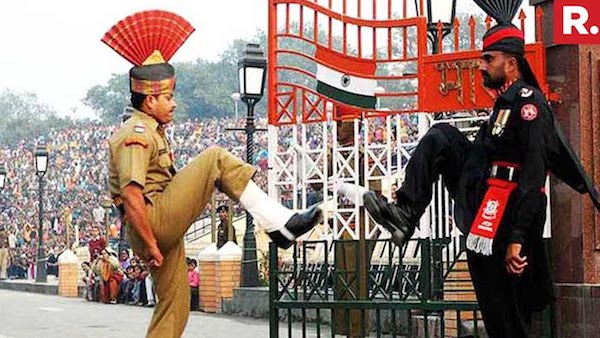
By Shahzad Raza
“Both nuclear rivals have almost tried all options — wars, dialogues and trade — but to no avail. The two sensitive issues, Kashmir and terrorism, have been hampering progress in other areas for long……… In 2009, at Sharm-el-Sheikh, Pakistan’s former Prime Minister Yousaf Raza Gillani and his Indian counterpart Manmohan Singh agreed to cooperate on fighting terrorism together. That was the most remarkable development after the deadly Mumbai attacks.”
Pakistani schoolchildren of the 1980s had a great fascination with Indian classic Mahabharat, which was telecast on Doordarshan and used to reach TV sets across the border through analogue antennas. The character of Bheem was quite popular among viewers.
That generation of the late 1970s or early 1980s, which had no remorse watching Indian entertainment shows, transferred the same fascination to their children who had Chotta Bheem to enjoy. Those who had access to PTV in India would still remember the character of Chaudhry Hashmat Ali of one of the greatest Pakistani drama, Waris.
People were then beginning to forget the horrific memories of the Partition and two unfortunate wars. Pakistani agencies were not meddling in the Kashmir affairs and their Indian counterparts were not colluding with Afghans to fan separatism in Balochistan. Osama bin Laden and his jihadis were preparing to defeat the Red Army. Uncomprehending then was the frequent stalemates on multiple issues, including Kashmir, water, visas, trade, etc. India granted Pakistan MFN status, vying for access to Afghanistan and Central Asia. However, Pakistani policy makers did not respond.
Things changed drastically after the collapse of the Soviet Union, leaving Pakistan to bear the burden of refugees and radical ideologies. The jihadis had no inclination to return to their barracks like a regular army. Many of them joined Kashmir separatist groups, sparking serious tension between the two neighbors.
The complexities of proxy war were not suitable for both India and Pakistan, given their proximity, economies and cultural bonds. Yet, the two countries have been exhausting themselves since the end of the first Afghan war.
Both nuclear rivals have almost tried all options — wars, dialogues and trade — but to no avail. The two sensitive issues, Kashmir and terrorism, have been hampering progress in other areas for long. During Gen Pervez Musharraf’s regime, a remarkable progress was made on the Kashmir issue. The last People’s Party government almost convinced the then Indian government to stop accusing Pakistan of sponsoring terrorism. In 2009, at Sharm-el-Sheikh, former Prime Minister Yousaf Raza Gillani and his Indian counterpart Manmohan Singh agreed to cooperate on fighting terrorism together. That was the most remarkable development after the deadly Mumbai attacks.
The successive PML-Nawaz government took several bold initiatives but for one reason or other things went back to square one. For a long time, Indian policy makers kept on pressing Pakistan to leave the issue of Kashmir until there was a congenial atmosphere. Pakistani establishment was not listening. Now both civilian and military leaderships in Pakistan are talking about building the same atmosphere through economic and cultural ties. The Indians are not listening, perhaps because of the impending General Election.
Musharraf and his PM Shaukat Aziz envisioned if the bilateral trade was increased it would diminish the state-level animosity. They often cited the example of Germany and France that how the World War-II rivals rebuilt their relations through trade. The incumbent government of PTI in Pakistan feels the same. Germany and France are a classic example for the neighboring countries to repair the fractured relations. The South Asian rivals have their own Alsace-Lorraine — Kashmir. The nature of conflict and emotional attachment with the beautiful territory cannot be underestimated.
Both have their stakes in Afghanistan. What if the two sides, somehow, start considering that barren land their Alsace-Lorraine. What if Pakistan and India take over the process of rebuilding Afghanistan together? Dialogue with the Taliban seems to have entered the final stage. Pakistan can still use whatever leverage left over Taliban. And India can pull strings and make Afghani establishment toe the line. Together, the two countries could do wonders in Afghanistan. While shifting their joint interests into a third country, both neighbors must revive once strong cultural ties.
Warmongers need to take a back seat. The next course should be determined by the likes of late Asma Jehangir and Arundhati Roy. Can’t Pakistan’s real estate tycoon Malik Riaz build urban metropolises in Afghanistan, with steel provided by Lakshmi Mittal? Otherwise, dare one can say that sudden death is much better than prolonged and painful illness through slow poisoning.
(Source: Tribune India)





Be the first to comment